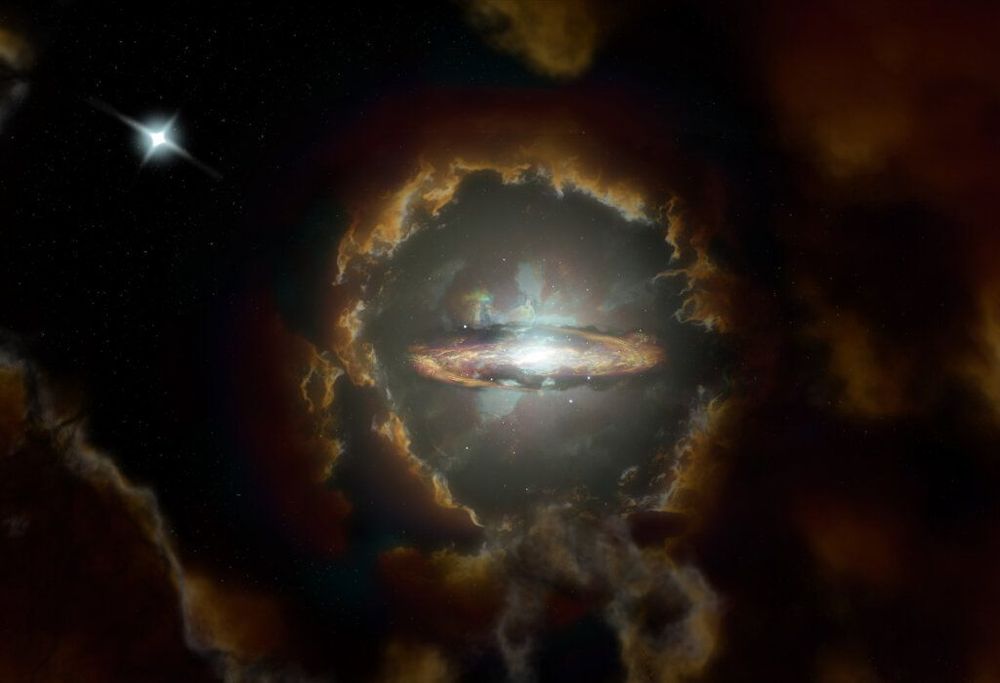In our 13.8 billion-year-old universe, most galaxies like our Milky Way form gradually, reaching their large mass relatively late. But a new discovery made with the Atacama Large Millimeter/submillimeter Array (ALMA) of a massive rotating disk galaxy, seen when the universe was only ten percent of its current age, challenges the traditional models of galaxy formation. This research appears on 20 May 2020 in the journal Nature.
Galaxy DLA0817g, nicknamed the Wolfe Disk after the late astronomer Arthur M. Wolfe, is the most distant rotating disk galaxy ever observed. The unparalleled power of ALMA made it possible to see this galaxy spinning at 170 miles (272 kilometers) per second, similar to our Milky Way.
“While previous studies hinted at the existence of these early rotating gas-rich disk galaxies, thanks to ALMA we now have unambiguous evidence that they occur as early as 1.5 billion years after the Big Bang,” said lead author Marcel Neeleman of the Max Planck Institute for Astronomy in Heidelberg, Germany.
